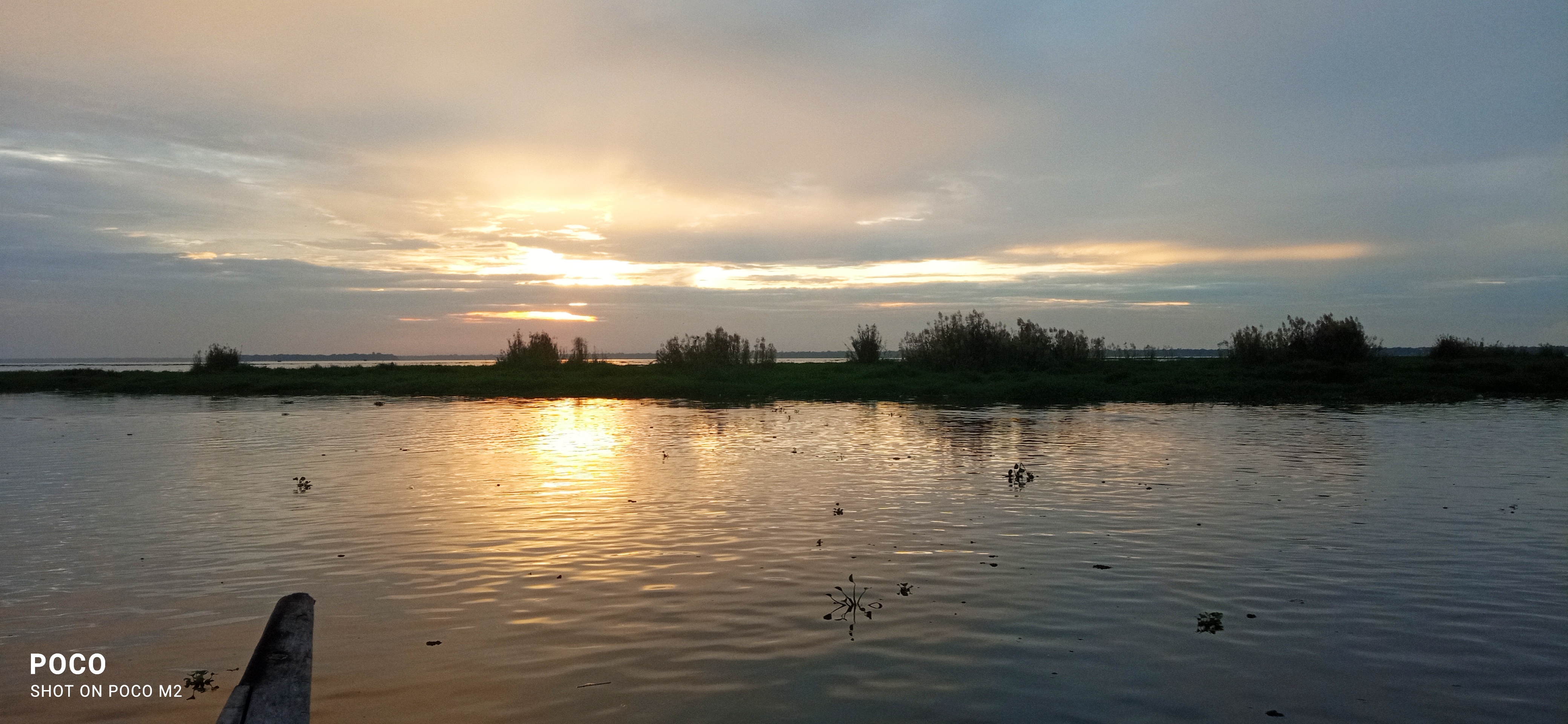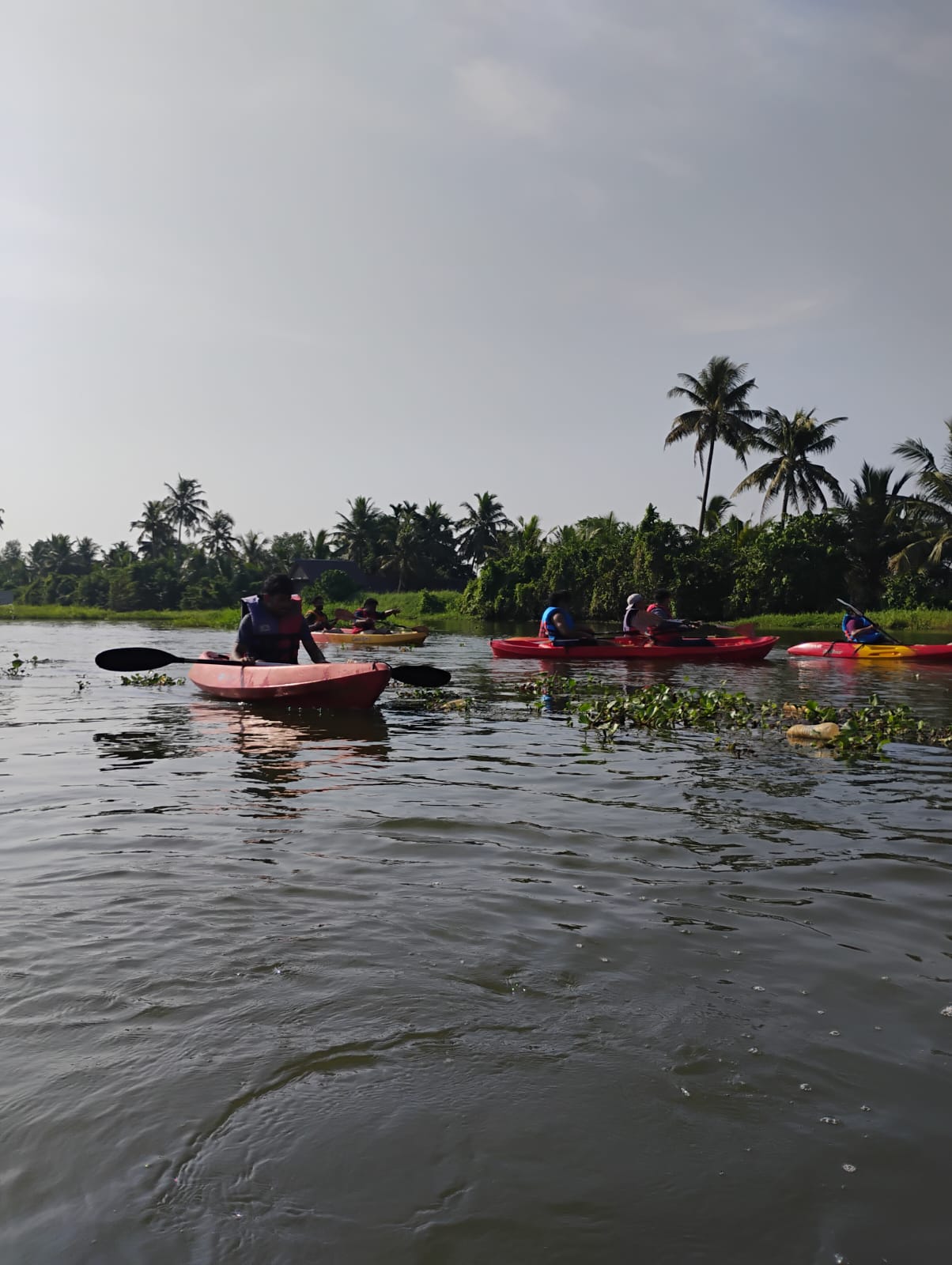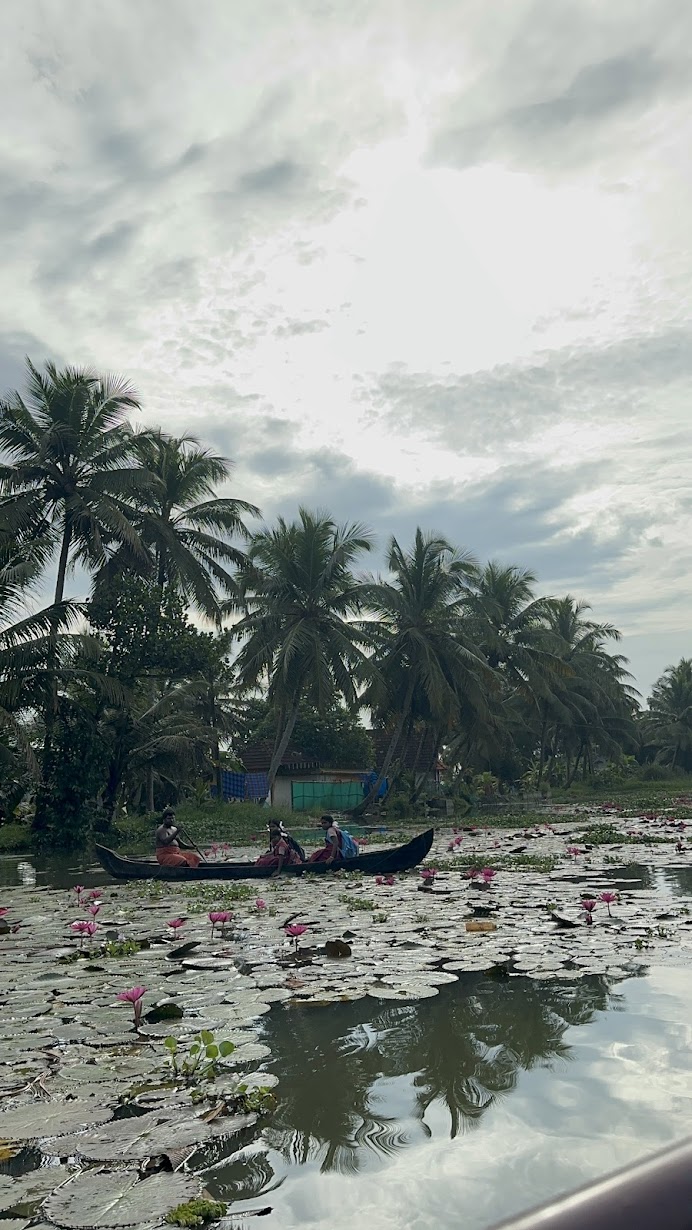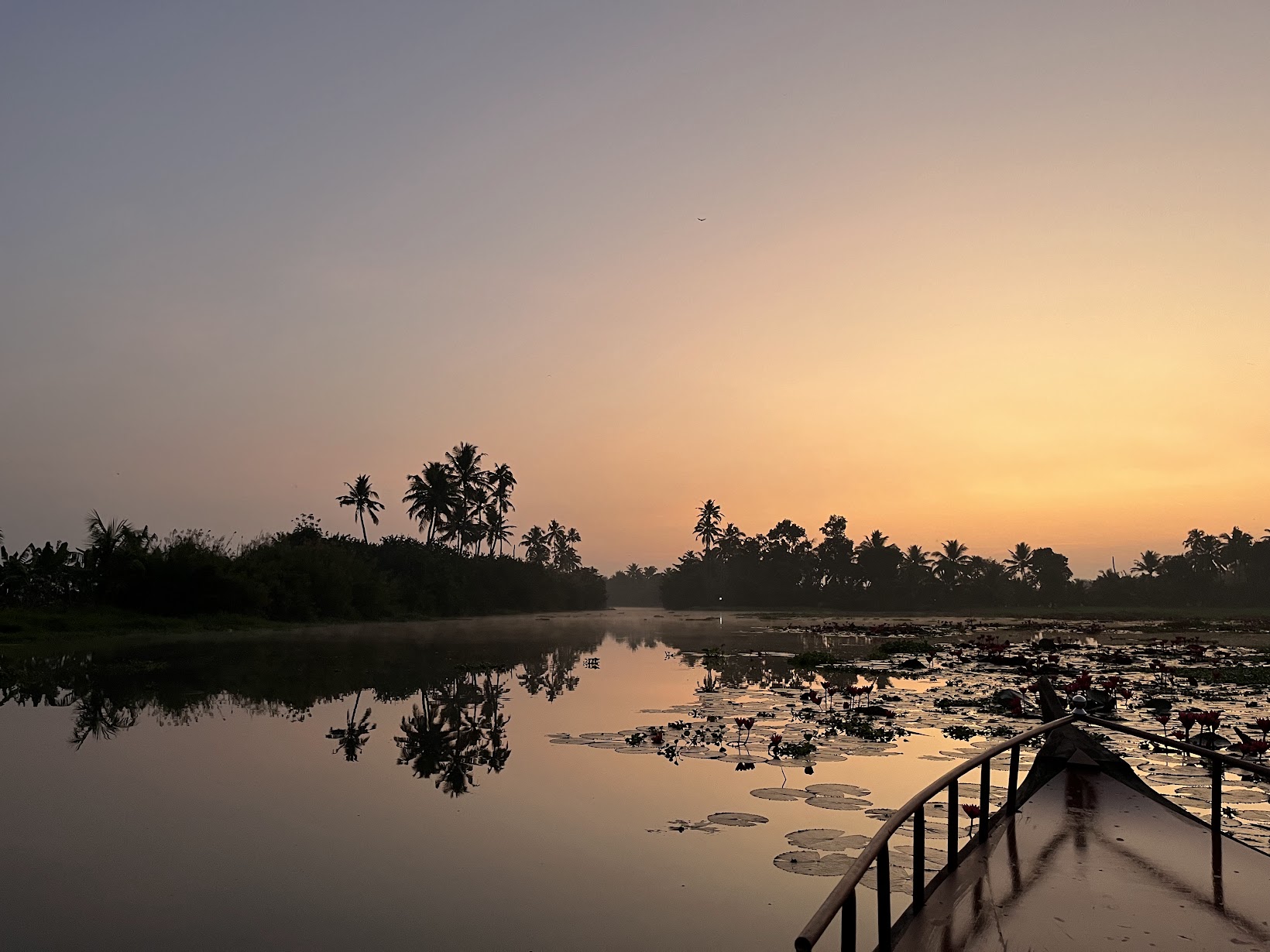1. Introduction: A Gentle Glide into Kumarakom
The Arabian Sea's saltwater combined with the freshwater runoff from Kerala's interior lakes and rivers to organically create the Kerala backwaters. The brackish water became trapped between the barrier islands and the mainland as a result of the tides and sea waves that created them. Water birds, tropical forest birds, reptiles, insects, amphibians, fish, and crustaceans create a unique habitat in the 1500-kilometer-long Kerala Backwaters. Its growing urbanisation and tourism have made it susceptible to water contamination and land encroachment. We have been able to protect the Backwaters to the greatest extent possible by progressively increasing public awareness among visitors and residents.
Due to the sustainable lifestyle we lead here, our portion of the Kerala Backwaters, known as the Kumarakom Backwaters, has managed to preserve its natural beauty, lush vegetation, and leisurely pace of life. Our significant usage of wooden canoes and kayaking across the Kumarakom villages is one of the main ways we adhere to sustainability. The tiny canals here, which prevent houseboats from navigating, are a natural defence mechanism against the likely water contamination.

2. A Landscape that Breathes Water
Kumarakom is nourished by Vembanad Lake which is India’s longest lake as well as a Ramsar wetland site of international importance. On the other side, the narrow, shimmering canals construct the veins of the Kumarakom villages meeting the paddy fields below sea level.
It is a unique place where land and water flows into each other providing safe haven to aquatic life, bird life and crustaceans. This is why the ecosystem is fragile and delicate. Though the natural coconut groves, thick layers of shrubs and mangrove trees prevent the soil erosion during the monsoon, but, pollution from motorboats, unregulated constructions, careless disposal of plastic wastes can bring a massive imbalance to the ecosystem of Kumarakom disturbing the livelihoods of the locals living here as well as the biodiversity.

Thus, there comes the need for sustainable eco tourism ventures where visitors choose canoe rides instead of speed boats, guided kayaking activities, bird watching during the sunrise cruises, learning traditional fishing techniques from the fisherfolks, and learning traditional handicrafts while visiting local families. These travel options have low impact on the natural environment but have a deep influence on the local economy of Kumarakom bringing smiles to the faces of the families that live here in sync with the natural environment.
3. Canoeing and Kayaking: Navigating the Kumarakom Backwaters in the local way
The lifelines of Kumarakom are traditional wooden canoes. The locals utilise canoes to go from bank to bank through the Kumarakom canals because there are fewer roadways than linking waterways. Farmers make their way from their paddy fields to the harvest regions, duck farmers tend to the thousands of ducks who are out foraging, fishermen lay their nets from boats, and schoolchildren and teachers use the canoe path to get from their homes to the school.
Three to four nimble people can fit in the slim-built native canoes. With bamboo shades and separate seats for no more than two persons, the traveler canoes are incredibly comfortable, making them ideal for viewing the local attractions from the comfort of the covered vessels.

The use of kayaks in Kumarakom's promotion of environmentally friendly and conscientious travel is relatively new. Kayaks, which are typically one- or two-seaters, enable backwater exploration without the need for motors or fuel, therefore lowering pollution.
In addition to offering immersive experiences in the heart of Kerala's backwaters, canoes and kayaks are noiseless vessels that cause the least amount of disruption to the local wildlife, including birds and insects. All you leave behind are your footprints, and you take with you the essence of the verdant, immaculate natural settings.
4. The need to support sustainability by canoe and kayak rides
The wooden canoes and kayaks are sustainable modes of transport because of the following reasons:
No Carbon emissions compared to motorized boats like speedboats or houseboats.
The gentle gliding by the canoes and kayaks causes almost no disturbance to the aquatic and birdlife here in the Backwaters.
Canoe making was one of the earliest traditions in Kerala intersected by multiple rivers, lakes and canals. When you choose canoe ride over motorised boats, you will be honoring the tradition of crafting canoes and keep it alive.
Canoes and Kayaks are owned by local people. So, when you take canoes for backwater cruises, you directly support the local economy.
5. How canoe journeys offer more immersive experiences than crossing things off a bucket list:
You can feel the place as you take off on a canoe and paddle gently through the Kumarakom canals: birds calling from the nearby trees, a few frogs and otters scuttling about, a couple of butterflies perched on flower shrubs, a horde of ducks foraging, tiny fishes rising close to the water's surface from beneath your boat, and smiling locals waving and greeting you.

You can stop, slow down, and look around because the boat moves slowly. You can gain a thorough grasp of Kumarakom's local way of life and culture by taking your time and observing the area with mindfulness. This profound comprehension cultivates a sense of fraternity and harmony between us.
Find the perfect canoe cruise experience for you here: https://canoekerala.com/backwater-day-tours-packages
8. How You Can Paddle Responsibly
Following several observations and comments, we have included a brief summary of responsible canoeing and kayaking practices.
- If you want to promote sustainable experiences, you should pick a local community-run canoe or kayak trip.
- Avoid littering when kayaking or canoeing.
- To truly experience a location, ask your local guide about its history, culture, and surrounding areas.
- Decide to take it slow—stop, look around, and talk to locals.
- Choose local activities such as fishing, kayaking, learning how to make crafts, and cooking the way they do.
- To gain a better knowledge of the local way of life, you might try some of the tea, food, and cool beverages.
9. Final Thought: When Travel Only Causes Ripples
Travelling to learn about the local way of life and culture makes your trip unique and meaningful. You have an impact on the life of the locals in addition to the locations. Choosing to leave no carbon footprints when kayaking and canoeing in the Kerala Backwaters is a responsible decision in addition to the experiences you have. By choosing ecotourism in responsible travel villages like Kerala's Kumarakom, you are leaving a lasting impression on your life and creating priceless experiences that you will treasure for years to come.

